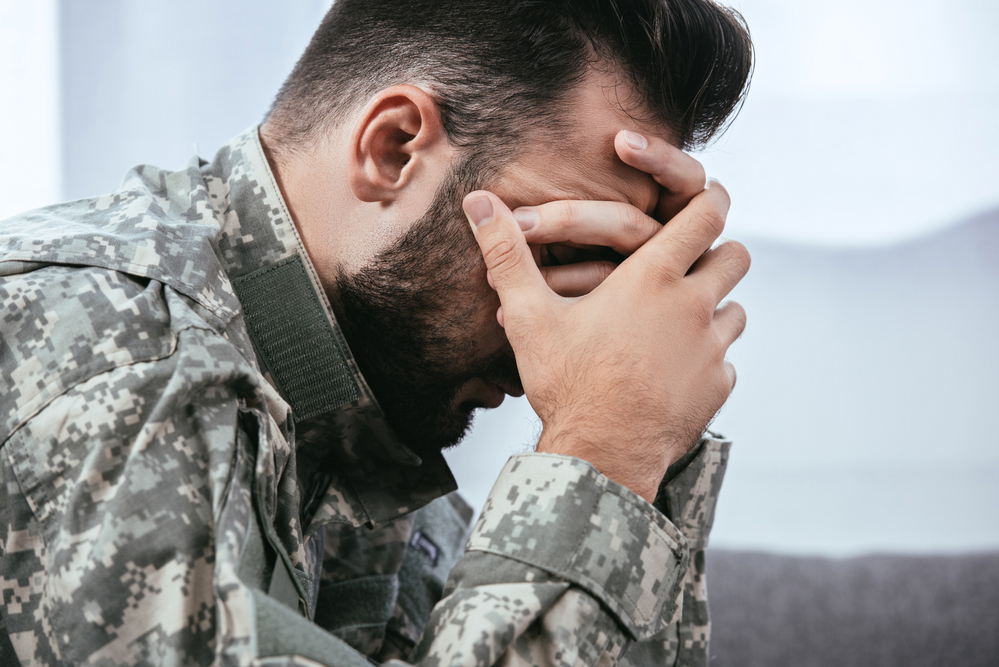Post-traumatic stress disorder (PTSD) is a mental health condition stemming from exposure to traumatic events, affecting approximately 7% of Americans. It manifests as a natural response to experiences like sexual abuse, physical assault, violence, or serious accidents.
While PTSD impacts around eight million adults, its effects are particularly pronounced among American veterans. Veterans often endure injuries, fatalities, and other life-threatening scenarios both in war zones and non-combat environments. Regrettably, the intensity of these traumatic experiences can cast a lifelong shadow of PTSD over veterans.
Impact of PTSD on Daily Life
For a lot of veterans, PTSD symptoms obscure the switch from military to civilian life. The cognitive and emotional ramifications of the disorder can strain relationships and delay career progression. Due to the trauma’s nature, victims may struggle to recall event specifics. Additionally, veterans grappling with PTSD may experience emotions like guilt or shame, heightened social withdrawal, negative self-perceptions, self-blame, and difficulty accepting positive reinforcement.
Military Factors Influencing PTSD
Although PTSD manifests differently for everyone, certain factors may heighten the risk of developing the disorder.
- Gender: Both genders in the military face the risk of military sexual trauma, but women are more vulnerable to harassment and unwanted sexual advances.
- Exposure: PTSD can stem from various sources beyond active combat, including visits to military hospitals or learning about a comrade’s death secondhand.
- Access to Mental Health Services: Post-service, some veterans struggle to find therapeutic programs, which worsens their conditions.
- Deployment Location: The nature and timing of a veteran’s deployment can influence their likelihood of developing PTSD, with certain conflicts posing greater risks than others.
Supporting Veterans With PTSD
Veterans encounter numerous challenges upon transitioning from active duty. Whether it’s securing employment, pursuing education, or reintegrating into society, they often lack the needed support. Without intervention, issues like PTSD can strain relationships and impede personal growth.
PTSD is a complex disorder that requires careful diagnosis and treatment, often involving direct confrontation of the trauma. Understanding the intricacies of this debilitating condition is essential for providing effective support. For comprehensive statistics, symptoms, and information on PTSD, refer to our resource.

Infographic provided by Veteran Car Donations, a top company for yacht donations
Sources:
https://www.ncbi.nlm.nih.gov/pmc/articles/PMC6164108/
https://www.verywellmind.com/ptsd-from-the-vietnam-war-2797449
https://www.veterancardonations.org/blog/what-are-ptsd-triggers/
https://www.maketheconnection.net/conditions/ptsd/#:~:text=Some%20of%20the%20most%20common,can%20impact%20your%20everyday%20life.
https://www.heroesmile.com/veteran-ptsd-statistics-that-everyone-should-know/
https://www.veterancardonations.org/blog/types-of-ptsd-treatments-and-therapies/
https://www.hillandponton.com/veterans-statistics/ptsd/
https://www.ptsd.va.gov/understand_tx/tx_basics.asp
https://www.psychiatrictimes.com/view/complementary-and-integrative-health-approaches-ptsd
https://cck-law.com/blog/veteran-ptsd-statistics/
